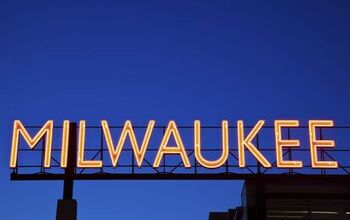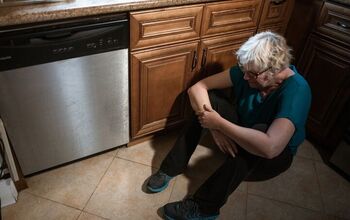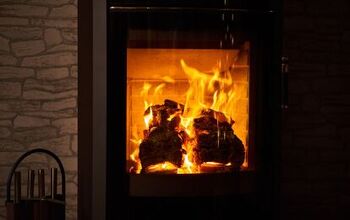How Can I Find Out If My Neighbor Has Homeowners Insurance?

Living next to other people can put your property at risk. You must keep your possessions protected with policies that cover accidents. But what happens when your neighbors aren’t as cautious? And how can you find out if a neighbor has homeowners insurance or not?
You can find out whether your neighbor has homeowners insurance by asking them. And if you rent, you can get the information from your landlord. Some rental properties require tenants to keep renter’s insurance on their apartments. But coverage can depend on the location and amenities. So, don’t forget to request details when discussing the policies.
What Happens If My Neighbor Doesn’t Have Homeowner’s Insurance?
You could be responsible for damages to your property if a neighbor doesn’t have adequate homeowner’s insurance. That’s because insurance companies pay for repairs and replacements. But your neighbors can’t claim damages on a policy that doesn’t exist. And unless you can prove negligence, you might get stuck with the bill.
Meanwhile, their policies must cover the right things, or you’re both in trouble. But most companies tailor coverage based on the policyholder’s needs. So, you have to ask for specifics either way. And if the provider doesn’t pay for the claim, you and your neighbor will have to split the costs.
DID YOU KNOW: You can sue your landlord or neighbor if you’re the victim of an avoidable accident.
What Does Homeowners Insurance Typically Cover?
There are no average homeowner’s insurance policies because each one is different. However, a comprehensive contract covers damages, repairs, and replacements from floor to ceiling. Plus, the coverage typically extends to outdoor structures such as fences, garages, sheds, and swimming pools.
Homeowner’s insurance policies protect your assets and help pay for damageNeighbor’ssf an accident. However, most people also enjoy protection from fire, hail, lightning, wind, and theft or vandalism. The point is to secure the structure and all items inside the home. So, ask your underwriter for more details or read your contract to cNeighbor’sst Does Homeowners Insurance NOT Typically Cover?
Most homeowners’ insurance policies don’t cover things like insect infestations or rodent damage. You also can’t get underwriters to pay for rust, rotting, or general wear and tear. Plus, you’re on your own when you buy products with factory defects. So, take those issues to the manufacturer instead. And be sure to register product warranties for added protection.
Insurance policies also don’t cover foundation repair, sewage system tests, replacements, or electrical issues. And you can’t get any money for negligent behavior either. Remember, you’re responsible for what happens at your house. So, stop answering the door for rowdy neighbors and guests who don’t respect your property.
NOTE: Your insurance company probably won’t pay for environmental damages either. But you might get help with neighborhood accidents if you write it into your policy.
Does My Insurance Cover Damage to a Neighbor’s Property?
The point of homeowners insurance is to protect your property in case of an accident. Policies help prevent loss and reduce the need for legal mitigation. Thus, some insurance policies include coverage for your neighbor’s property. However, comprehensive coverage usually costs more than the minimum.
Providers that offer comprehensive coverage can pay for the policyholder’s actions on or off their property. That means the homeowner can travel with confidence or receive guests without stress. Still, each contract is different. And some don’t include provisions for other people or addresses. So, be sure to ask your underwriter for more details.
How Do You Check If a Property Is Insured?
Worried about whether your neighbors are protected from accidents while you visit? You can check the status of an insurance policy in three ways:
- Ask Your Neighbor. Request information about their policy parameters to ensure you’re safe at their house.
- Talk to the Landlord. If your neighbors rent, discuss insurance coverages with the property owner.
- Call Local Insurance Providers. In some states, you can ask companies if they have an active policy on specific properties.
Meanwhile, you can also search for active insurance claims on occupied or unoccupied properties. First, request a CLUE report. “CLUE” stands for Comprehensive Loss Underwriting Exchange, and it helps insurance companies organize claims. Usually, LexisNexis offers the data for free. But you might have to pay for it under certain circumstances.
Do All Insurance Companies Use CLUE?
Many insurance providers submit claims data to the CLUE database weekly or monthly. However, that’s not always the case. Some insurers never use the platform to track policyholder activities. So, you’ll have to ask for financial records or court documents instead.
You won’t find much information after five years, though. It’s standard practice for insurance companies to purge their losses every half-decade. But that means only recent or active accounts show up in the search. And your neighbor’s presence on the CLUE list demonstrates their willingness to take responsibility for on-site damages.
FACT: You can access updated CLUE reports at home online. Plus, the service is usually free.
Does Homeowners Insurance Have to Be in the Name of the Owner?
Insurance companies won’t issue a policy to anyone but the homeowner. That’s because doing so places liability in someone else’s hands. So, it’s the property owner’s responsibility to protect tenants and their assets. And landlords must keep comprehensive coverage on rentals in most states.
Moreover, many insurance providers stipulate that the insured must live in the house. And you have to get a particular policy to cover tenants in a rental property. So, whoever you find listed in the CLUE database is who owns the home. That’s also who’s responsible for damages, vandalism, and theft.
Related Questions
What Happens When a Tree Branch Falls on a Neighbor’s Property?
You or your neighbor should immediately submit a claim to your homeowner’s insurance if a tree branch falls on the property. Depending on the policy, you could get out of having to pay for damages, removal, or repairs. However, that’s only true if the fallen tree is an act of nature. Otherwise, you’ll have to prove negligence or negotiate terms with your neighbor.
How Do I Get My CLUE Report Online?
It’s easy to get a CLUE report online. First, search for the reporting website on your browser. Or call 1-888-497-0011 to speak to a customer service representative. You can also send an email request for information at consumer.documents@lexisnexisrisk.com. And if all else fails, ask the homeowner for a copy of their insurance policy. Since it doesn’t contain much private information, you should obtain the answers you seek.Getting a CLUE report is especially easy when you’re a rental tenant. That’s because the landlord must maintain the homeowner’s insurance on the property to rent it legally. So, if you request claims information and don’t receive it, you could get your landlord in trouble.
Can You Cut a Neighbor’s Overhanging Tree to Prevent Property Damage?
In most states, you’re allowed to cut your neighbor’s tree branches if they hang over into your property. It’s your neighbor’s responsibility to maintain the plants in their yard. And if they rent, it’s either the landlord’s duty or a job stipulated in the rental lease.Regardless, it’s not your fault that the tree hangs in your yard. So, talk to the homeowner about your intentions to give them time to fix it themselves. And if they don’t, feel free to cut. You can also sue them for labor and equipment costs, especially if their tree caused damages, injuries, or loss.
Does Homeowners Insurance Cover Pet Attacks?
Most homeowners insurance policies cover the people and pets within a home. That means your furry friends are protected against accidents and attacks from other people or animals. However, your insurance provider might not cover negligence on your behalf. So, keep your pets on a leash and don’t allow unfamiliar animals in your yard. And check your policy documents for more specific information.
Does Homeowners Insurance Cover Trees Falling on a Neighbor’s Car?
Your neighbor’s car insurance company should pick up the claim if a tree falls on their vehicle. However, they must purchase comprehensive coverage to get money for repairs and replacements. So, if their car policy isn’t enough to cover the damages, then they can file a report on their homeowner’s policy for the rest. As always, check your contract for more details.
Live Safely and with Peace of Mind
Your neighbors may not have coverage for damages or accidents. That means you could be held responsible for injuries and mishaps that occur on their property. And if you don’t have homeowners insurance for yourself, the bills could get pretty high.
Live safely in your neighborhood and enjoy peace of mind in your house. Find out if your neighbors have homeowners insurance before you visit. Then pay for comprehensive coverage to protect yourself even when you’re not at home.
Related Guides

Tiffany Nichols specializes in aesthetics, design, marketing, and manufacturing. She's a copywriter and editor for several home renovation companies in the U.S. and works alongside some of the biggest names in the industry. Her hobbies include architecture, art, mental health, and fashion.
More by Tiffany Nichols



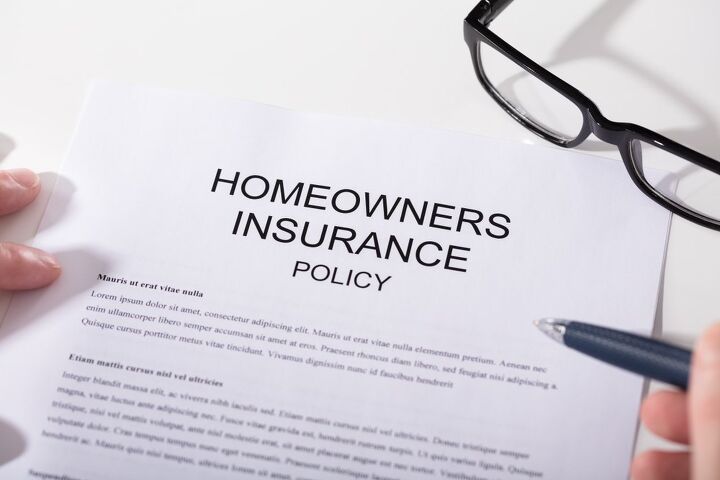






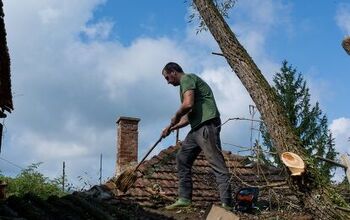
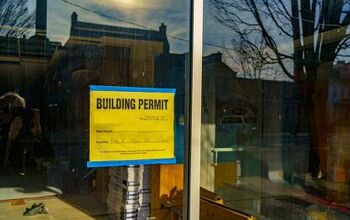

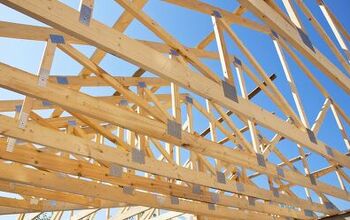


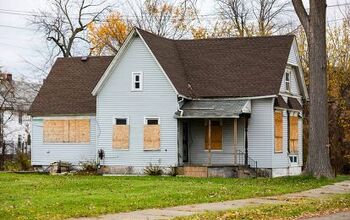
![Cost To Drill A Well [Pricing Per Foot & Cost By State]](https://cdn-fastly.upgradedhome.com/media/2023/07/31/9074980/cost-to-drill-a-well-pricing-per-foot-cost-by-state.jpg?size=350x220)
